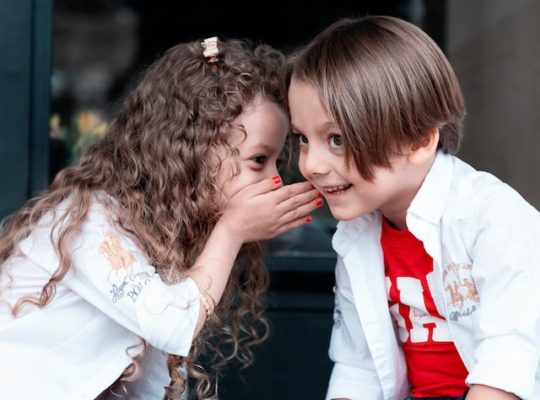With Valentine’s Day this week, the topic of love has been in the air.
I’ve learned a lot of things about love over the last few years and I wanted to share just five of those concepts here. My hope is that you can apply the ones that resonate with you to create more love and joy in your life.
1. What is love?
There are endless songs and poems about it. It inspires paintings and plays and movies. People live for it and die for it. But what is it? What is love?
Love is the emotion one feels when focusing in on the virtues of the other, and identifying them with those virtues.
Rabbi Noah Weinberg, Rosh HaYeshiva of Aish HaTorah
I heard my favorite definition of love about five years ago while sitting in a lecture hall in Israel. I was there on a trip that brings Jewish moms together to the country through Momentum, an organization of which Lori Palatnik is the founding director.
Lori, who learned this from Rabbi Noah Weinberg, defined love as the following:
Love is the emotion one feels when focusing in on the virtues of the other, and identifying them with those virtues.
I had to hear this definition many times to really understand it.
Love is a choice.
That means that we choose to focus on someone’s virtues … or not.
We don’t just fall in love. That type of love is actually infatuation.
We don’t just fall out of love either.
In many cases, we simply choose to stop focusing on their virtues.
Focusing on their virtues doesn’t mean we don’t see their flaws.
In fact, it’s the people we love the most whose flaws we also know the best.
Think about your kids.
You love them. I’m sure you do (most days anyway :-)).
You can tell someone about your kid and all their amazing qualities and feel lots of love as you do, all while knowing all their worst qualities. You just don’t focus on those when you are loving them.
The same is true of your spouse. You see their best and their worst, but which do you focus on?
Well what kind of marriage do you want? A great one or lousy one?
You can be realistic and be aware of both the good and bad in others, but how you choose to see them will make all the difference.
Are they a good person with some bad qualities or a bad person with some good qualities?
Where do you want to put your focus?
Where do you want others to put the focus on you?
2. Love is an action.
I have learned that in the Hebrew language, each word reflects the essence of the meaning behind it.
The word for love in Hebrew is “ahava” which has as its two-letter root the word hav (give) preceded by the letter aleph, which means “I will give.”
The more you give, the more you love.
Mindful Doc Mom
The idea here is that the more you give, the more you love.
This is the opposite of what most of us are taught, particularly when it comes to giving. We get the message that love is measured by what we receive. But this definition suggests that we have it backwards. Love is actually measured by what we give. And the more we give, the more we love.
This explains why in most cases, our parents will love us more than we love them and why in most cases we will love our kids more than they will ever love us.
We love our kids BECAUSE we give to them constantly, not despite all the giving.
If you want to know if you truly love someone, ask yourself the following question:
Do I feel more joy from giving to them or receiving from them?
If you want to love them more, try giving more.
3. The opposite of love is not hate, it’s indifference.
The opposite of love is not hate, it’s indifference.
Elie Wiesel
When you stop paying attention, when you stop sharing, when you stop caring what the other person thinks or does or doesn’t do, that’s when love really deteriorates.
This is why one of the most painful things is being ignored.
Hate is a good sign. It means you still care.
Indifference is a lot more dangerous. It’s insidious like a cancer and just grows with time if it’s not curbed.
4. Unconditional love is a gift you give yourself.
Unconditional love is giving love without conditions, no matter what.
Love is one of the best emotions anyone can feel.
Most people, if given a choice, would choose to feel love.
But we withhold it from others and ourselves so often.
Why?
Why would we choose to withhold something that feels so good to us?
When we love unconditionally, we get to feel love.
It’s for us. It makes our lives better and easier and it feels amazing.
Our choice not to feel love only hurts us, so why would we choose that?
Mindful Doc Mom
Our choice not to feel love only hurts us, so why would we choose that?!?
Love is ALWAYS an option and ALWAYS available.
5. Lovability
There’s nothing you need to do or change to be more lovable.
You don’t need to be different in any way to be loved more.
You being loved has nothing to do with you. It’s about the person loving you.
Lovability is about another person’s capacity to love you, not your capacity to love them.
If someone chooses to love you or not, that is a reflection of their capacity to love.
If you love or don’t love them back, then that is a reflection of your capacity to love.
But your lovability is always absolute.
You are infinitely lovable. You always have been and you always will be.
Mindful Doc Mom
You are always one hundred percent worthy of love, no matter what.
There is nothing you can say or do to change that.
You are infinitely lovable. You always have been and you always will be.
What do you think about these five concepts?
Love them or hate them?
Let me know in the comments below.




